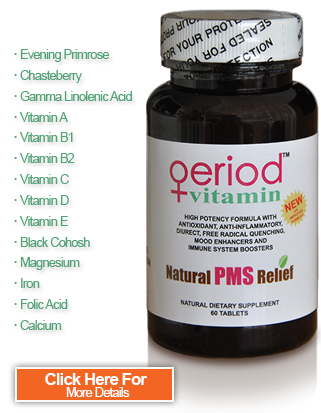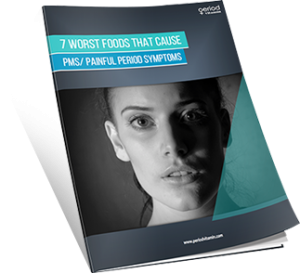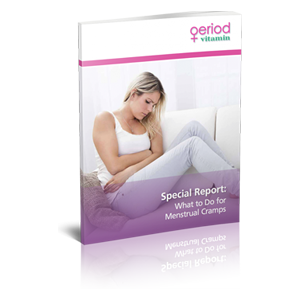Living with PMS Insomnia is not easy. So many women and their partners have to deal with this challenge every single month. Is there anything that can be done about this? This before, during and sometimes post cycle insomnia can lead to a lot of other issues such as irritability, anxiety, headaches, night sweats, and overwhelming fatigue. These physical issues can lead to emotional and relationship issues as well. For that reason it is really important to understand menstrual cycle related insomnia, its symptoms and causes.
 This pms induced insomnia can occur at any time during the sleep cycle. It can happen at sleep onset when you are trying to fall asleep, or you can wake up in the middle of the night and not be able to go back to sleep. The last possibility is that you can wake up too early and not be able to go back to sleep.
This pms induced insomnia can occur at any time during the sleep cycle. It can happen at sleep onset when you are trying to fall asleep, or you can wake up in the middle of the night and not be able to go back to sleep. The last possibility is that you can wake up too early and not be able to go back to sleep.
So what is the cause of insomnia that is associated with a woman’s period?
Is it due to the increased production of hormones and the related imbalance that causes during the pre-menstrual, follicular and luteal stages of the menstrual cycle?
Or is it from another reason entirely? How severe is pms insomnia? First let’s look at what this inability to sleep might be caused by.
Causes of PMS Insomnia
So what is the cause of this really difficult and intrusive problem? Insomnia is much more common in healthy women than it is in men and usually ten to fourteen days out from the start of their period bleeding during the luteal stage of the cycle. This is the stage in which progesterone begins to be created in larger quantities than estrogen and begins to dissipate the excess estrogen. In a variety of sleep studies on women in the menstrual cycle there is a clear downward spiral in REM sleep during this luteal stage. This happens because REM sleep occurs when the body temperature is low. However in the luteal stage of the cycle, when progesterone is created, seems to defeat this as progesterone seems to raise the body temperature. Thus disturbing or preventing REM sleep. Women fall asleep but do not reach REM or dream sleep.
On the other hand melatonin, necessary for deep sleep seems to be negatively impacted by estrogen. Estrogen is produced in large quantities in the follicular stage of the menstrual cycle. In pms there is a problem with the secretion of melatonin and it may be reduced by the estrogen production. Serotonin is also reduced at this time in the cycle and the combination of reduced serotonin and reduced melatonin results in increased insomnia. Research is ongoing in this field and no one has all the answers but it certainly appears that the intersection between the sleep cycle and the menstrual cycle ends up having profound effects on the woman.
It is also true that all the other things that happen during pms that can be caused by insomnia can also be the cause of insomnia. It is fairly difficult to sleep through or with hot flashes, dreams and nightmares, night sweats, severe cramping and bloating, going to the bathroom frequently, heavy bleeding and tender breasts. All of these are symptoms of pms and all of these are good reasons for not being able to sleep through the night.
Treatments and Remedies
For some treating pms induced insomnia should be as simple as treating the pms itself. That may be so but there are specific treatments and remedies that can be considered and tried for the insomnia specifically. There may not be a cure, but there are certainly many potential treatments and remedies that might help. This includes medications both over the counter (OTC) and prescription, herbs, vitamins and supplements, along with food and lifestyle issues.
Medications: There are a multitude of medications for insomnia though most are intended for long term issues, they have been and are prescribed for pms insomnia. Then there are a few over the counter medications as well. The most common over the counter medications for pms are Pamprin and Midol. Midol would not be appropriate for insomnia as it contains caffeine but Pamprin may be helpful.
Prescription medications include
• Benzodiazepine : There are several sedatives in this category including estazolam, temazepam, clonazepam, flurazepam and triazolam.
• Nonbenzodiazepine sedatives: This category includes zolpidem, eszopiclone and zaleplon.
• Ramelteon stimulates melatonin receptors
• There are a few antidepressants that also help with insomnia and they are trazodone and amitriptyline.
• Quetiapine is also effective at 100mg for insomnia even though this is an off label use.
• Progesterone – this hormone will lower the amount of estrogen and thereby allow for a sufficient amount of melatonin to be present for sleeping.
• Selective serotonin re-uptake inhibitors (SSRI’s) also help with pms symptoms and therefore with the insomnia as well.
Other OTC (Over the Counter)
There are many antihistamines that have sedative properties such as diphenhydramine which is found in Benadryl and in analgesics such as Advil PM and Tylenol PM. There is also an over the counter version of melatonin which we discussed earlier as being essential to a healthy sleep cycle. So taking over the counter melatonin might restore that sleep cycle that has been disrupted by the hormonal imbalance of the menstrual cycle.
Herbs and Natural remedies:
There are a handful of herbs and natural remedies that are effective in treating pms insomnia. Even as insomnia causes irritability and other pms symptoms, those symptoms also can cause the insomnia. So if you treat the bloating, cramping, mood swings, sore breasts and headaches you are also treating the insomnia. So herbs that help you to relax as well as cause sleepiness or treat pain and bloating are helpful here as well.
 There would include Chamomile Tea which is very relaxing along with Green Tea. Black Cohosh relieves bloating, cramping and tension so that you can sleep. Valeriana officinalis (Valerian) is an herb that is very affective when it comes to dealing with pms insomnia. Dandelion root is a diuretic and that relieves the uncomfortable bloating and may allow for more rest. Tribulus Terrestris is another herb known for treating insomnia, sleeplessness and restlessness.
There would include Chamomile Tea which is very relaxing along with Green Tea. Black Cohosh relieves bloating, cramping and tension so that you can sleep. Valeriana officinalis (Valerian) is an herb that is very affective when it comes to dealing with pms insomnia. Dandelion root is a diuretic and that relieves the uncomfortable bloating and may allow for more rest. Tribulus Terrestris is another herb known for treating insomnia, sleeplessness and restlessness.
On the other hand l-tryptophan, dogwood and kava kava have been shown to have negative side effects without any positive benefit when you use them for treating insomnia.
Vitamins and Supplements:
Progesterone: Progesterone is a hormone that can be prescribed and will counteract the infusion of estrogen that the body is normally creating during the cycle.
Vitamin D: Helps with calcium absorption.
Vitamin E: It will help to deal with all those other symptoms of pms that can add to insomnia such as nervousness, irritability, breast tenderness and depression.
Magnesium: It is recommended that you take 1000mg per day along with calcium to help with the absorption.
Calcium: It is recommended that you take 1500mg per day to prevent mood swings that can affect insomnia. Vitamin D is needed to help with calcium absorption.
Vitamin B – Vitamin B5 (pantothenic acid) is known to help alleviate stress which helps to fight insomnia. Vitamin B6 is known to restore estrogen levels back to their normal levels. Vitamin B12 also relieves stress.
Diet and Lifestyle
Essential Nutrients: There is some indication that the essential elements that the body needs to be healthy can play a role in dealing with pms insomnia. So what are the essential elements?
• Water – Our bodies are almost all water and water is the most essential element we need. Even when experiencing bloating due to pms, drinking water can relieve these symptoms as well as assist with insomnia.
• Carbohydrates – We need complex carbohydrates as opposed to simple ones. 55%
• Proteins – Amino Acids are what make up proteins and we need amino acids to fight insomnia. Insomnia may be associated with an imbalance of neurotransmitters and amino acids (proteins) can help to restore the balance.
• Fats – Omega three fatty acids and polyunsaturated fats are helpful in dealing with many aspects of pms including insomnia.
• Vitamins and Minerals: Both vitamins and minerals are essential elements for a healthy body. We have already covered in depth the ones that most impact pms induced insomnia. What may be of interest and not covered previously is that vitamins help with the chemical reactions that the body initiates, while mineral help with the body’s processes.
Light Therapy: There are the beginnings of acceptance of light therapy for dealing with all symptoms of pms, but most of the studies are either anecdotal or done by the vendors/practitioners of light therapy themselves. For instance “, 76% of women noted a reduction in their symptoms, to the point where most of them no longer suffered from PMS. In a study of 50 migraine headaches, 49 were rated by the patients as being “helped” and 36 as being “stopped” by using a lightmask. The attacks shortened in all cases. It is lightmask users themselves who have convinced us that pulsed light therapy is a valuable treatment for insomnia, with many falling asleep before the session ends.” (http://www.lightmask.com/)
You can see there are many ways to deal with pms insomnia.



